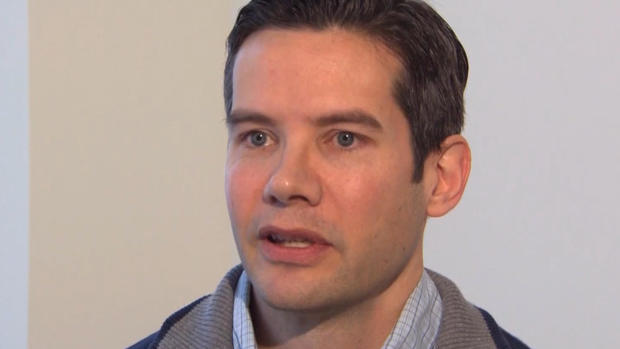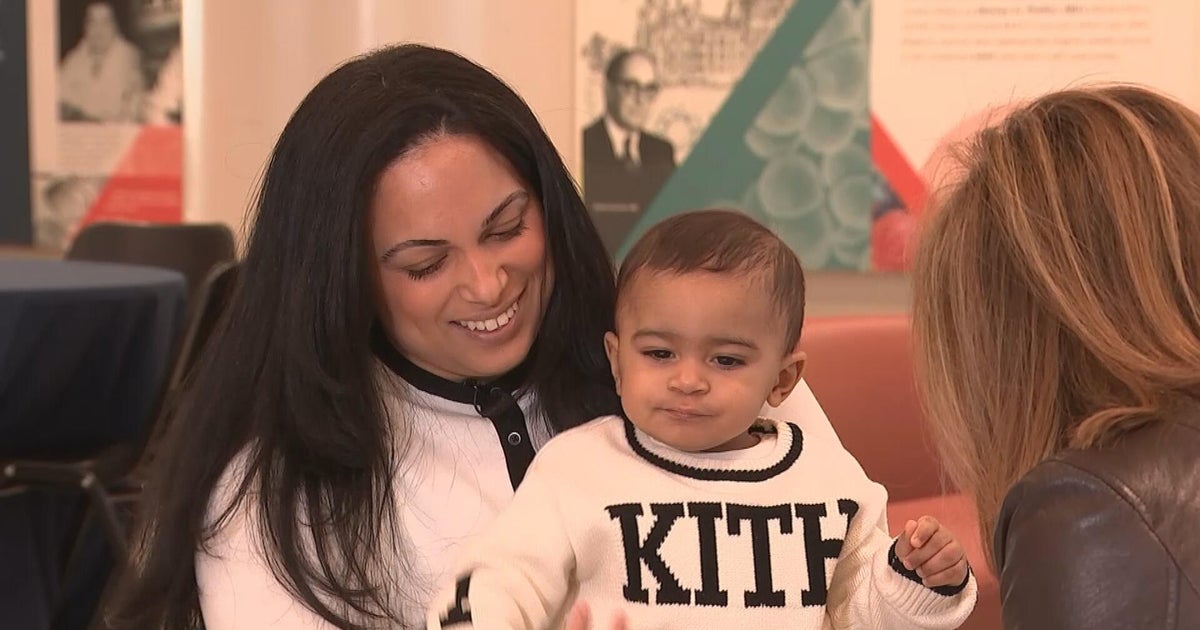ALS patient hopes stem cell treatment will be "a powerful weapon"
Forty-one-year-old David Neufeglise was a healthy family man and mechanical engineer when he started noticing constant twitching in his arm. After months of tests, the devastating diagnosis came back last January as amyotrophic lateral sclerosis, or ALS.
"Hearing a doctor say it, it takes your breath away," Neufeglise told CBS News. "You think about all your hopes and dreams for the future and your family, and your career, and everything. And it puts all those into question."
Life suddenly shifted for David, his wife and their three daughters. ALS, which is also known as Lou Gehrig's disease, is a progressive neurodegenerative disease that affects nerve cells in the brain and the spinal cord. As the disease progresses, people lose the ability to speak, eat, move, and breathe. It often proves fatal within three to five years.
As many as 30,000 Americans may currently be affected by the disease, according to the ALS Association.
There is no cure for ALS so Neufeglise was open to any potential treatments. His doctors told him about a clinical trial at Massachusetts General Hospital in Boston testing a new stem cell technology.
The treatment from BrainStorm Cell Therapeutics uses the patient's own stem cells extracted from a sample of their bone marrow. They're multiplied and matured to make them behave more like brain cells, then injected back into the patient so the cells can help repair the brain and spinal cord. Researchers hope the treatment can decrease brain inflammation that causes worsening of ALS.
About 200 people are being recruited to take part in the clinical trial. Three previous smaller trials showed positive results.
"These stem cells from people's own bodies can act like an anti-inflammatory drug," said Dr. Merit Cudkowicz, an ALS specialist at Massachusetts General Hospital.
The disease has already affected Neufeglise's balance and his hand movements, but he says he's grateful to take part in this study.
"My hope for this trial is that finally ALS patients have a powerful weapon they can fight the disease with," he said.
He gets injections every eight weeks and says he is encouraged about what the treatment could do for him and others.




